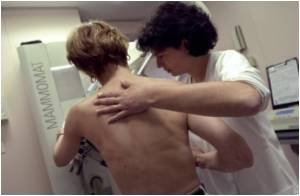When breast cancer surgeons regularly confer with plastic surgeons prior to surgery, their patients are more likely to have reconstruction.

“Breast reconstruction is a very complex treatment issue that requires a lot of discussion. Our results suggest that discussion can be quite different depending on where a patient gets initial treatment,” says lead study author Steven J. Katz, M.D., M.P.H., professor of internal medicine at the U-M Medical School and of health management and policy at the U-M School of Public Health.
“Patients with similar characteristics or preferences may get a different story from different surgeons – and this depends largely on whether a plastic surgeon is on the treatment decision team from the get-go. Plastic surgeons are the ones with the expertise to explain the increasingly complicated procedure options,” Katz adds.
Results of the study appear online in the journal Medical Care and will be published in the October issue.
Researchers from the Cancer Surveillance and Outcomes Research Team, a multidisciplinary collaboration among five centers across the country, surveyed breast cancer patients and their surgeons about treatment choices.
They found that use of mastectomy over breast-conserving lumpectomy varied little by surgeon. Primarily, women who were not eligible for lumpectomy or who preferred mastectomy received the more aggressive surgery. This supports previous research by the CanSORT team that shows surgeons generally are consistent in their approach to mastectomy use.
Advertisement
“This is a deeply intimate and important decision that women have to make. It should be made with the right information about reconstruction options in consultation with a plastic surgeon involved up front in the treatment planning,” says Katz, co-director of the socio-behavioral program at the U-M Comprehensive Cancer Center.
Advertisement
Source-Newswise















